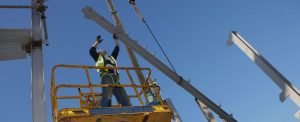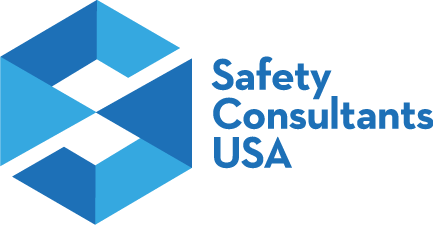Qualified Rigger and Signal Person Training, Birmingham AL
Qualified Rigger & Signal Person Training
- Understanding basic crane safety and set-up
- Learn new caught between / pinch point regulations
- Understand new ground condition regulations for cranes
- Learn new overhead power line regulations
- Signal Person Regulations
- Rigging Training and Regulations
- Practical and written testing
- Each course participant will receive a 100+ page training manual that includes all material covered in the course for future reference

Who is a qualified rigger?
A qualified rigger is a rigger who meets the criteria for a qualified person. Employers must determine whether a person is qualified to perform specific rigging tasks. Each qualified rigger may have different credentials or experience.
Does OSHA require riggers to be certified?
Formal qualification or certification in rigging is not required, as long as the employer can show the rigger has knowledge, experience and training in rigging and can demonstrate that he can solve rigging problems. Employers are not required to have riggers independently tested or assessed.
What does a certified rigger do?
A certified rigger is a person who has been trained and certified to handle and move loads. The level of certification depends upon the individual’s training, knowledge, skill base, and ability to perform functions related to the selection, inspection, and proper use of rigging equipment.
More About Our OSHA Inspection Course
Safety Consultants USA is an Atlanta-based consulting company that provides OSHA compliant training for companies that operate in potentially hazardous industries. Those at Safety Consultants USA know being prepared to handle complications on a job site starts with quality training from experienced personnel. Our Rigger and Signal Persons course was created to help businesses like yours make sure their employees are able to handle the responsibilities that come with their job. This course will teach you to:
- Understanding basic crane safety and set-up
- Learn new caught between / pinch point regulations
- Understand new ground condition regulations for cranes
- Learn new overhead power line regulations
- Signal Person Regulations
- Rigging Training and Regulations
- Practical and written testing
- Each course participant will receive a 100+ page training manual that includes all material covered in the course for future reference
No matter the size of your organization, Safety Consultants USA can help deliver the safety services your company needs.
A Safety Consultants USA consultant is standing by to provide a quote on your next project by calling toll free 877-723-7622.

Safety Consultants USA Location – Birmingham, AL
Atlanta GA
Safety Consultants USA
8100 Roswell Road
Suite 410
Atlanta, GA 30350
Phone: 1.866.506.4229
Fax: 1.770.769.2115
Email: contact@safetyconsultantsusa.com
Birmingham, AL
Birmingham ( BUR-ming-ham) is a city in the north central region of the U.S. state of Alabama. With an estimated population of 209,403 in 2019, it is the second most populous city in Alabama. Birmingham is the seat of Jefferson County, Alabama’s most populous and fifth largest county by area. As of 2018, the Birmingham-Hoover Metropolitan Statistical Area had a population of 1,151,801, making it the most populous in Alabama and 49th-most populous in the United States. Birmingham serves as an important regional hub and is associated with the Deep South, Piedmont, and Appalachian regions of the nation.
Birmingham was founded in 1871, during the post–Civil War Reconstruction era, through the merger of three farm towns, most notably Elyton. The new city was named for Birmingham, England, the United Kingdom’s second largest city and then a major industrial city. The Alabama city annexed its smaller neighbors as it developed into a major industrial center based on mining, the iron and steel industry, and rail transport. Most of the original settlers were of English ancestry. The city was developed as a place where low paid, non-unionized immigrants (mainly Irish and Italian), along with African-Americans from rural Alabama, worked in the city’s steel mills and blast furnaces and gave it a competitive advantage over unionized industrial cities of the Midwest and Northeast.
From its founding through the end of the 1960s, Birmingham was a primary industrial center of the southern United States. Its rapid growth from 1881 through 1920 earned it the nicknames “The Magic City” and “The Pittsburgh of the South”. Its major industries were iron and steel production. Major components of the railroad industry, including rails and railroad cars, were made in Birmingham. The two primary hubs of railroading in the “Deep South” have been Birmingham and Atlanta. The economy began to diversify in the latter half of the twentieth century, as the steel mills began to shut down. Banking, telecommunications, transportation, electric power transmission, medical care, college education, and insurance have become its major economic activities. Birmingham now ranks as one of the largest banking centers in the U.S. It is also one of the important business centers of the Southeast.
In higher education, the Birmingham area has major colleges of medicine, dentistry, optometry, occupational therapy, physical therapy, pharmacy, law, engineering, and nursing. Birmingham has been the location of the University of Alabama School of Medicine (formerly the Medical College of Alabama) and the University of Alabama School of Dentistry since 1947. In 1969, it gained the University of Alabama at Birmingham, one of three main campuses of the University of Alabama System. It is also home to three private colleges: Samford University, Birmingham-Southern College, and Miles College. The city has three of the state’s five law schools: Cumberland School of Law, Birmingham School of Law, and Miles Law School. Jefferson State and Lawson State Community Colleges are also located in the city. Birmingham is also the headquarters of the Southeastern Conference, one of the major U.S. collegiate athletic conferences, as well as the Southwestern Athletic Conference.
Rigger and Signal Person Training in Birmingham AL
- OSHA Construction Safety Consulting
- Mock OSHA Inspections
- OSHA Safety Training
- Third-Party Site Safety Assessments
- Written Health and Safety Programs and Safety Documentation
- Safety Staffing
- DOT/Fleet Safety Programs
- OSHA Citation Defense
- Workers Compensation Claims Management
Industries in Birmingham, AL that we work with include:
- General Contractors
- Specialty Contractors
- Residential Contractors
- Industrial/Manufacturing
- Trucking/Fleet Industries
- Environmental Contractors
- Sanitation Companies
- Grocers
- Quasi-Public Companies
- Landfills
- Automotive
- Injection molding
- Sheet Metal Stamping
- Paper/Tissue Mills
- Mobile and Tower Crane
- Milling and Paving
For Businesses located in Birmingham, AL in need of Rigger and Signal Person Training
Other services that we offer in the region:
[page-generator-pro-related-links group_id=”9461,9302,9193″ post_status=”publish” post_parent=”alabama/Jefferson County/Birmingham” output_type=”list_links” limit=”0″ columns=”2″ link_title=”%title” link_anchor_title=”%title” link_featured_image=”0″ orderby=”rand” order=”asc”]
Cities in the area that our Rigger and Signal Person Training are serving in:
[page-generator-pro-related-links group_id=”9079″ output_type=”list_links” link_title=”%title” limit=”0″ columns=”2″ parent_title=”%title” next_title=”%title »” prev_title=”« %title” post_status=”publish” post_parent=”alabama/Jefferson County” orderby=”none” order=”asc”]
